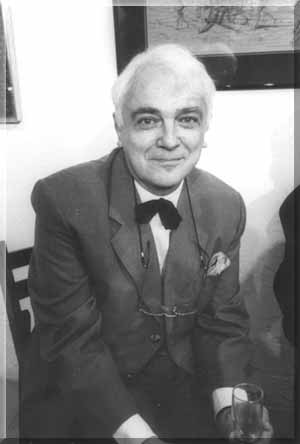
HOMAGES![]() Back
Back
Eulogy for Jean-Claude Farjas by Ghislain de Diesbach (writer)
Dear Jean Claude,
You and I spoke so often over the last thirty years, and as recently as fifteen days ago, and yet this is the last time that I will be able to speak to you. Today, I also speak on behalf of all those who knew you and pay a special homage to you, and thank you, for having been, for each of us, a mervelous friend.
It is a testament to your eclecticism, noble-heartedness and broadmindedness that your friends are large in number and that we come from extremely different backgrounds. This eclecticism and fondness of others, which is so rare, were due not only to your qualities, but also to the experiences gained from a fulfilled life and the different carrers your pursued.
Born in 1924 to an old middle-class Burgundian family, there was nothing middle-class about you, given the pejorative meaning which one attaches to this word today, because you had known how to preserve qualities of honesty, uprightness and hard work with ran in the traditions of these families.
Very young and uncertain about your future, you did not reject anything from your past and kept your independence of judgment, a solid culture, and a deep sense of true values, as well as the courteusness which made a relationship with you so charming and sure.
Though our random conversations, I was able to glean some of the memories of your adolescence and of the war years, a difficult education for your age. In 1944, you joined the 1st French Army and thus took part in the campaigns of Alsace and Germany.
Upon your return, you gave up the austere disciplines of ethnology and anthropology you studied earlier on, to start a career as a journalist for "Paris Presse" and "Paris Match". This gave you the opportunity to interview many famous people, actors, writers, and politicians. You met Jean Lecanuet, for whom you directed the presidential campaign.
From written journalism, you moved to the Radio and Television broadcasting, to soon become the Director of the center for press affairs of the Principality of Monaco, a new occasion to meet many celebrities and to collect memories you then shared with spirit.
Is this before or after you directed Radio Tangier? I don't remember anymore, but you spent several years in Morocco, meeting many celebrities, French and foreign and, like Delacroix, filled your life with visions and experiences which you were to bring to life one day in your paintings.
It was relatively late when you returned to your art after a first attempt in 1958. Undoubtedly, it is the reason you avoided the awkwardness and hesitation of the beginner. Matured by experience, and by many travels, you came to be an artist directly, without going through the difficult life of novice artist, which beginners confuse with the obvious sign of genius.
Your painting, in a century when all the audacities were allowed, even encouraged was almost a challenge against fashion and its extravagances. The art with which you composed your paintings, the meticulousness with details, the refined choice of colors, were all a protest against approximation, carelessness and the boasting of your contemporaries.
Depending on the state of mind of the observer, there lies in your paintings the serenity of lost paradises or melancholy of absorbed worlds. These are both mineral and vegetal landscape, in which man is usually missing, like a muted reproach addressed to manking for having spoiled the work of the Creator; it is an ideal world before sin, where an animal puts, from time to time, an unusual touch, a recall of life.
This strange painting, dreamlike, was quickly appreciated in France and abroad. It also was often exhibited in Brussels, Amsterdam and Tokyo. Success ever befuddled you. You only benefied from it to help others. Good artist, you were also good comrade, encouraging the beginners, helping then to exhibit their works, inviting them to the shows you managed in particular to the "Salon d'Automne" for which you were the General secretary.
Another lesser known aspect of your personalty is your talent as a writer. In the Fifties, you began a novel and also wrote short stories, some of which I read recently. It showed that you could have pursued a double career of painter and writer. With certain artists the two gifts are combined. I remember in pages devoted to Tangier, the description of a forging mill or a boiler room which gave evidence of the observations of the painter.
The meticulousness which one notices in your paintings, is also found in the way you carry out your life. You took pleasure in knowing that all was done well and organized well, which lead to this harmony of which you made one of the principals of your life : to not leave anything at random or improvised. You prepared a dinner for your friends with much care and detail, and yet, in spite of the concern for details, made sure the time with your friends was light and enjoyable.
Your life, however, was not free from vicissitudes, but you had reached this balance, this serenity which you had sought for a long time. Recently, evoking your past, you said to me melancholically : "I have never been so happy, I have finally the life that I wished, and it is now that I should leave it..."
November 29, You wrote to me : "Death prowls. Sometimes, it seems already to enter in anguish. God make that all occurs without distraugh, without suffering, to reach the other side..."
You received this visitor heroically, without complaint, only trying to forget her presence and her insistence to recall to you, each day a little more. Until the end, you stayed in control, drawing aside questions about your health to focus on others and to try to live, in spite of it all, giving to your friends a lesson of courage and abnegation. The soldier of 1944 and the intransigent artist were there, helping you for this last fight.
With death, there is no remedy ; there are nevertheless consolations. For the believer you were, there is the certainly of the eternal life, and for personalities such as yours, there is the hope to survive a while in the memory of your friends. Then when they in their turn disappear, your work will be there to recall to posterity your talent - and your name.
Saint-Sulpice (Paris, France), February 27, 2002
Homage to Jean-Claude Farjas in the Salon d'Automne in 1990, Paris
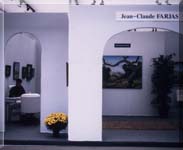
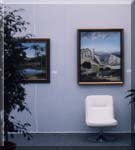
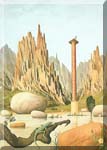
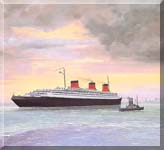

1 - homage ©
2 - homage ©
3 - The life of Saint Simeon ©
4 - Normandie, the arrival in New York ©
5 - Out of Africa ©
Homage to Jean-Claude Farjas in the Association des Artistes du 5e in 2002, Paris
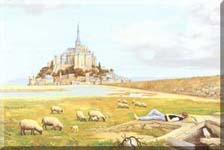
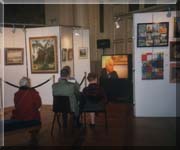


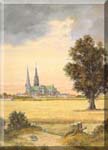
1 - The sleep of the shepherd, Mont Saint-Michel ©
2 - Homage ©
3 - The wounded young man ©
4 - Animals of Africa and Asia ©
5 - Chartres ©
Homage to Jean-Claude Farjas in the Salon de la Nationale des Beaux-Arts in 2002, Carrousel du Louvre, Paris

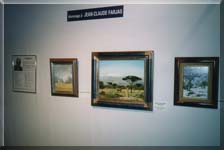
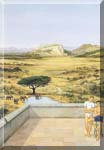


1 - Invitation at the Carroussel du Louvre ©
2 - Homage ©
3 - Oreste and Pylade ©
4 - The cruiser Georges Leygues in 1939 ©
5 - L'addax ©
Homage to Jean-Claude Farjas at the Mairie of the VIe arrondissement in Paris in 2008.




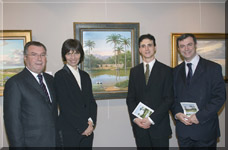
1 - Invitation ©
2 - Mairie du VIe arrondissement, place Saint-Sulpice, Paris. ©
3 - Mairie du VIe arrondissement, place Saint-Sulpice, Paris. ©
4 - Salon du Vieux Colombier, Mairie du VIe. ©
5 - Olivier Passelecq, Adjoint au Maire chargé de la culture; Madame Lecoq; Alain B.Farjas; Jean-Pierre Lecoq, Conseiller de Paris, Maire du VIe arrondissement. ©
